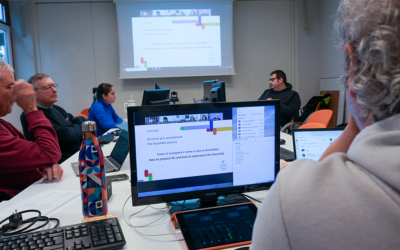 Professor Mohammad Shomali is very active in the field of interfaith dialogue. He is Dean of Postgraduate studies at the Department of International Affairs at Jami’at al-Zahra and is also the Director of the International Institute for Islamic Studies, Qom, Iran. He has been instrumental in organising events with Benedictine monks, Mennonites and has taken three delegations of post-graduate Iranian students to Rome to have spiritual contacts with Christianity. He was recently in Rome with a group of women students. We publish an extract of an interview with him.
Professor Mohammad Shomali is very active in the field of interfaith dialogue. He is Dean of Postgraduate studies at the Department of International Affairs at Jami’at al-Zahra and is also the Director of the International Institute for Islamic Studies, Qom, Iran. He has been instrumental in organising events with Benedictine monks, Mennonites and has taken three delegations of post-graduate Iranian students to Rome to have spiritual contacts with Christianity. He was recently in Rome with a group of women students. We publish an extract of an interview with him.
Recently, you led a delegation of young women students to Rome. What was your and their experience?
In May 2013, my wife and I accompanied a group of ten women currently doing post-graduate studies at Jami’atul Zahra, the largest Islamic seminary for women in Iran in the city of Qom. This was my 7th visit to Italy but I can say that it was the most successful (…) as over time you establish trust and you have a deeper level of friendship and dialogue. 
What is your experience of dialogue within the Focolare Movement; what are the characteristics of this dialogue?
(…) For us, the Focolare Movement served as a gateway to Christianity. With our Focolare friends we feel at ease as they have a deep sense of commitment to God, a profound love for God and humanity, and at the same time they have a great openness. (…) You feel that they do their best to accommodate you ; they make you feel that together we can work for the good.
I am sure that this charism of Chiara – her spirituality – was a gift from God in the 20th century and our hope is that it will continue to bear fruits in this 21st century. I very much also liked the idea of unity in that we should act as a community; we should think together, we should plan together, we should work together, and it’s very similar to what I think is the core message of Islam, especially in the school of the Ahlulbayt (Shia Islam) that we very much focus on the love which must exist between believers.
Therefore I find the spirituality of the Focolare very interesting. What they preach and what they exhibit in their character both confirm that we can achieve a lot if we have genuine love for God and for neighbour.




0 Comments